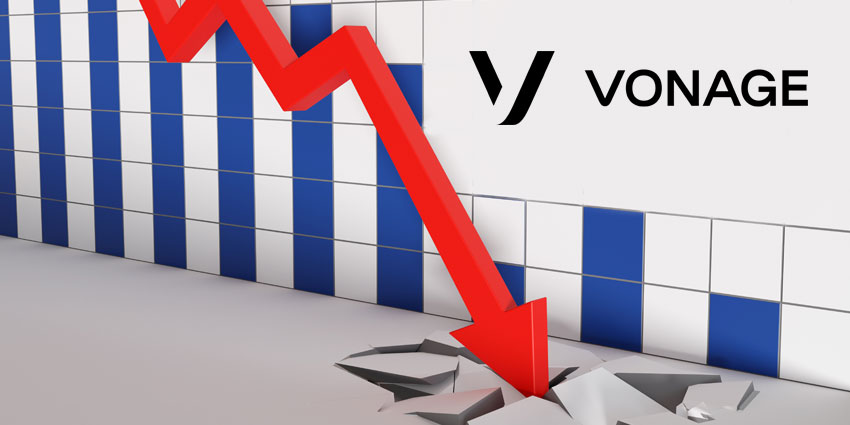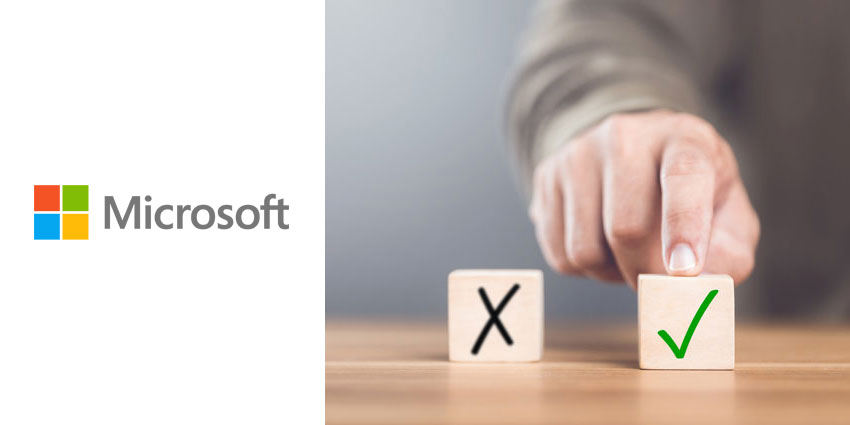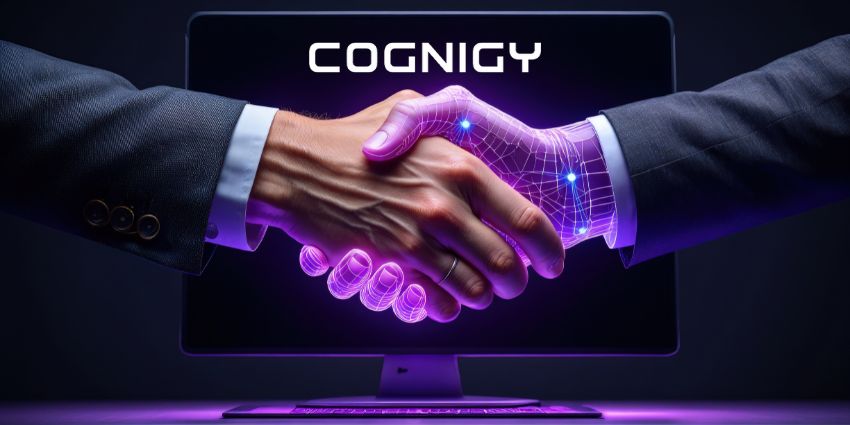Last week, Ericsson announced a Vonage impairment charge of $1.1BN. That follows a $2.92BN charge in November 2023.
Impairment accounting estimates an investment’s market value. So, when a company reports an impairment charge on an investment, it means that its value has dropped by the specific amount in the charge.
As such, by totaling the two charges, Vonage’s value has dropped by $4.02BN.
In addition, given that Ericsson acquired Vonage for $6.2BN, the networking giant appears to have lost almost 65 percent of its original investment.
The news comes after Vonage announced a five percent decline in overall revenue year-over-year (YoY) in April and reduced its operations “in some countries.”
At the time, Borje Ekholm, CEO of Ericsson, stated:
The group (Vonage) is trending well behind your and our initial expectations.
So, what has gone wrong, and what comes next?
The Ericsson-Vonage Acquisition: 2 Years On
In acquiring Vonage, Ericsson acquired three core solutions: a CPaaS, CCaaS, and UCaaS platform.
Ericsson bought Vonage primarily for its CPaaS APIs. After all, that element of Vonage’s business aligns well with Ericsson’s core technology for mobile operators.
As such, Ericsson has made some exciting moves with Vonage CPaaS, like combining those APIs with its 5G networks to deliver a Global Network Platform.
Through the platform, enterprises can embed 5G capabilities – including speed, latency, and Quality on Demand – within their apps and processes.
That’s big for many CPaaS buyers. Yet, two years later, not much has happened from a CCaaS and UCaaS perspective.
Of course, the product team could soon leverage the Global Network Platform APIs on the back-end of the UCaaS and CCaaS solutions to better manage the network experience. That would enhance the mobility of Vonage’s enterprise communications systems.
However, while mobility is excellent, it’s not a core deal winner within the comms space.
Meanwhile, since Ericsson first considered acquiring Vonage, a lot has changed in the UCaaS and CCaaS markets.
Speaking to CX Today, Rob Kurver, Founding Partner of the CPaaS Acceleration Alliance, said: “UCaaS has become commoditized over the last couple of years after Microsoft – more or less – won the pandemic. So, what do you do there?
Then, there’s the CCaaS part that has an interesting proposition, but it’s strange for Ericsson to be in the market, competing with their customers.
Perhaps Ericsson thought it could sell the CCaaS arm, as many anticipated – and still expect – significant consolidation within the space.
Yet, it raises a billion-dollar question: why didn’t Ericsson roll up a pureplay CPaaS provider instead?
Should Vonage Have Rolled-Up the Right CPaaS Provider?
The CPaaS industry has hundreds of players. Yet, few have a global reach, with Cisco Webex, Infobip, Sinch, Twilio, and – of course – Vonage perhaps the five standouts.
According to Kurver, Ericsson considered that reach a necessity within the early stages of its acquisition process. He said:
I know they were looking for alternatives to Vonage. But, think of Ericsson as a company; it’s large and corporate. They were looking for something that was organized in a way they could manage it. So, they went for one of the big guys.
Each of the four “big guy” alternatives had its detractors. For instance, Webex had not long entered the space by acquiring IMImobile. Meanwhile, Infobip may have appeared “too small”, having only recently surged to the forefront of the market.
Similarly, Sinch was not what it is today two years ago, as per Kurver. “Plus, it’s not looking at the network API operator play at all. That’s not where they focus.
“Then, there’s Twilio, which was never really an option. They’ve gone through “interesting changes” over the last couple of years.”
Those include a drop in its market cap even greater than Vonage has experienced. Indeed, its cap stood at $46.96BN in 2021; now, it’s $9.52BN.
Considering all this – alongside Vonage’s robust operator relationships – it’s understandable why Ericsson went for the vendor, and Kurver still believes the move “makes sense”.
“What I’m still hearing and seeing is that the integration is taking time, but Ericsson is very serious about it, and the new CEO… that’s working.
“But, it was just a lot of money. $6.2BN… that’s a lot of money.”
What to Expect from Vonage Moving Forward
CPaaS and the Global Network platform are Vonage’s definite priorities. The vendor will invest a lot of time and resources into building out its global developer community so it can reach more businesses with its advanced network capabilities and monetize 5G in new ways.
Ericsson’s deal with AWS earlier this year to make Vonage’s network APIs available to AWS developers through the cloud giant’s marketplace exemplifies how it’s already doing this.
Meanwhile, it may pull in another element of the Vonage portfolio: its conversational AI arm, which still receives warm reviews from analysts and end-users.
However, Vonage’s cut back on its global operations is a warning sign for the future of its UCaaS and CCaaS business.
Indeed, Vonage is likely to shrink its focus and double down on its core geographies for enterprise communications instead of stretching itself too thin. That’s a legitimate concern, considering its declining revenues.
Yet, Ericsson may also limit its losses and sell its CCaaS and UCaaS businesses to the highest bidder.
As for the impairment charges, let’s hope this is the last of them.








